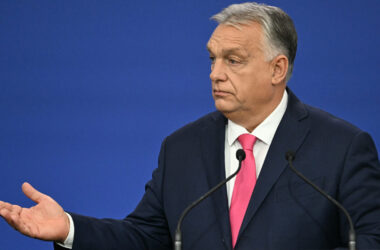A brewing clash between the European Union and TikTok underscores a growing rift in how democratic processes are viewed—and challenged—by global elites.
The unexpected first-round victory of Călin Georgescu, a nationalist champion who defied odds and establishment predictions, has rattled Brussels. Georgescu, a pro-sovereignty, anti-globalist candidate, surged to prominence thanks to grassroots support and innovative outreach on TikTok, leaving EU lawmakers scrambling for answers.
The European Parliament has demanded TikTok’s CEO appear to explain the platform’s alleged role in Georgescu’s rise, claiming “radicalization and disinformation” influenced the outcome. Valérie Hayer, a close ally of French President Macron, warned, “Romania is a warning bell: Radicalisation and disinformation can happen all over Europe with harmful consequences.”
Yet, to many, this sounds like the EU’s latest attempt to discredit a candidate who stands against its agenda. Georgescu’s first-round success is a clear sign that Romanians are rejecting the EU’s suffocating oversight and looking for leaders willing to prioritize national sovereignty.
While EU officials and researchers are zeroing in on claims of “fake accounts” and TikTok’s role in the election, they’ve failed to produce any evidence of wrongdoing—let alone foreign interference. Bogdan Manolea, a Romanian tech activist, accused TikTok of allowing “an army of fake accounts,” but his claims appear more speculative than substantive.
The EU’s fixation on Georgescu’s TikTok strategy smacks of desperation. Keith Kiely of the Bulgarian Romanian Observatory on Digital Media admitted TikTok had “significant influence,” but that influence appears to reflect real voter sentiment rather than manipulation. Georgescu’s message resonated with a population increasingly frustrated by Brussels’ overreach.
Even TikTok, often a target for EU criticism due to its Chinese ownership, declined to bow to the narrative. The platform highlighted its election integrity efforts, including partnerships with local NGOs, while refusing to comment on the baseless allegations being hurled its way.
Georgescu’s rise represents a growing pushback against the EU’s top-down governance. His campaign isn’t about disinformation; it’s about a people fed up with the status quo. As Romania heads toward a December 8 runoff, the choice is clear: a leader who values national independence or a continuation of Brussels’ suffocating control.




